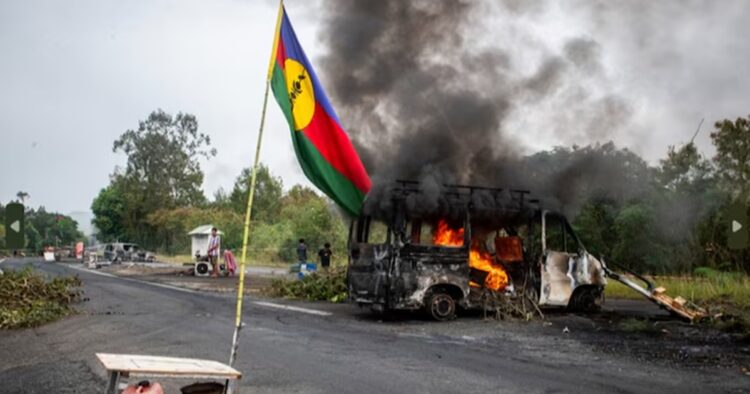French Prime Minister Gabriel Attal has announced that a return to normalcy in New Caledonia is still far off, following severe unrest. Protests began last week in the French territory, primarily driven by the indigenous Kanak people’s anger over a new constitutional amendment.
The amendment, approved in France, changes the rules for who can vote in local elections. Local Kanak leaders fear this change will reduce their political influence.
The protests have resulted in 6 deaths and significant damage, including burnt businesses, looted shops, and destroyed cars. Roadblocks have been set up, restricting access to essential supplies like medicine and food.
The local business chamber reported that 150 companies have been affected by the violence, either looted or burnt.
Australian Prime Minister Anthony Albanese expressed deep concern over the situation in New Caledonia, which is located about 1,500 kilometers (930 miles) east of Australia. A US State Department spokesperson condemned the violence and encouraged all parties to work towards resolving the tensions.
The United States has also updated its travel advisory, warning its citizens to reconsider travel to New Caledonia due to the unrest.
France’s top official in New Caledonia, Louis Le Franc, announced on Sunday that police operations to clear the main road from the capital, Noumea, to the international airport would take several days.
The High Commission reported that gendarmes have already dismantled 76 roadblocks. Despite these efforts, Aircalin, the local airline, stated that the airport would remain closed until Thursday.
The unrest has also impacted global markets, with shares of Australian nickel miners rising as nickel prices surged by 7% over the weekend. New Caledonia is a key supplier of this metal.
Pro-independence parties in New Caledonia are demanding that the French government retract the electoral reform before any further talks can occur.
Dominique Fochi, the secretary general of the pro-independence Caledonian Union, emphasized that the situation requires political solutions, not just security measures. Prime Minister Attal responded that restoring order is essential before any dialogue can begin.
Australia is preparing to evacuate its citizens from New Caledonia, pending approval from French authorities. Prime Minister Albanese mentioned that around 300 Australians have registered with consular officials for evacuation.
Currently, there are about 3,200 people trying to leave or enter New Caledonia due to the cancellation of commercial flights. New Zealand is also ready to repatriate its nationals, with defence aircraft on standby awaiting clearance from France.
The situation in New Caledonia remains tense, with ongoing efforts to restore order and international concern growing. The resolution of this crisis will likely require both security measures and political negotiations to address the underlying issues driving the protests.

















Comments